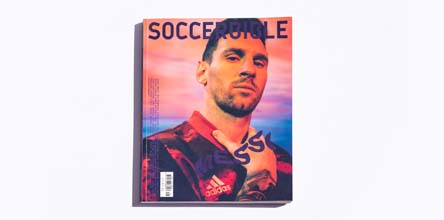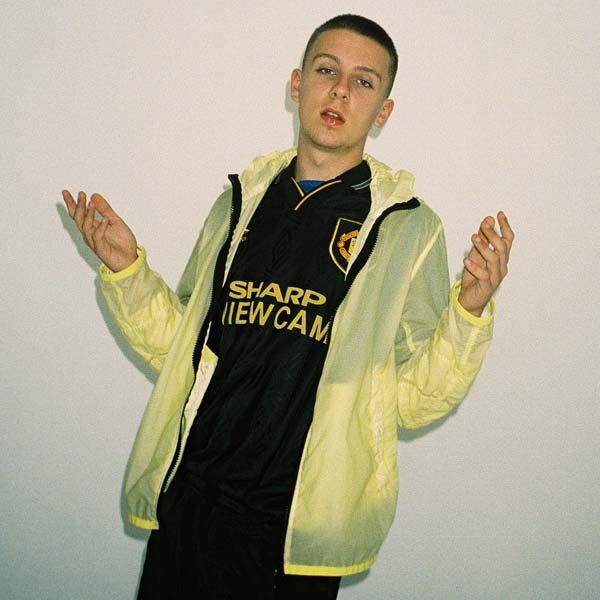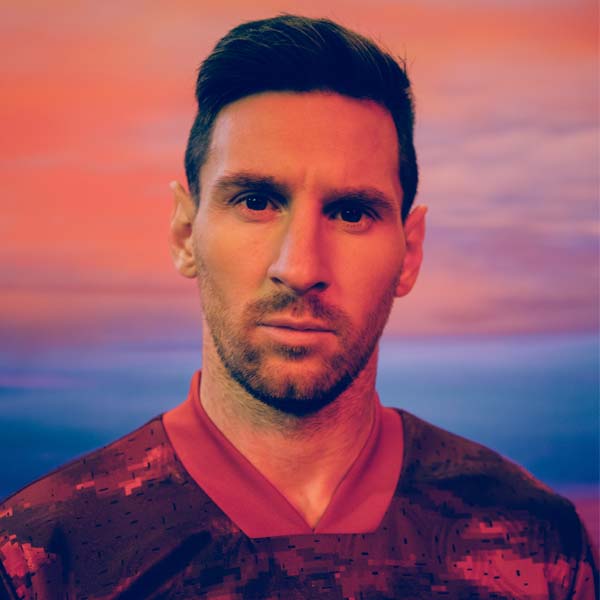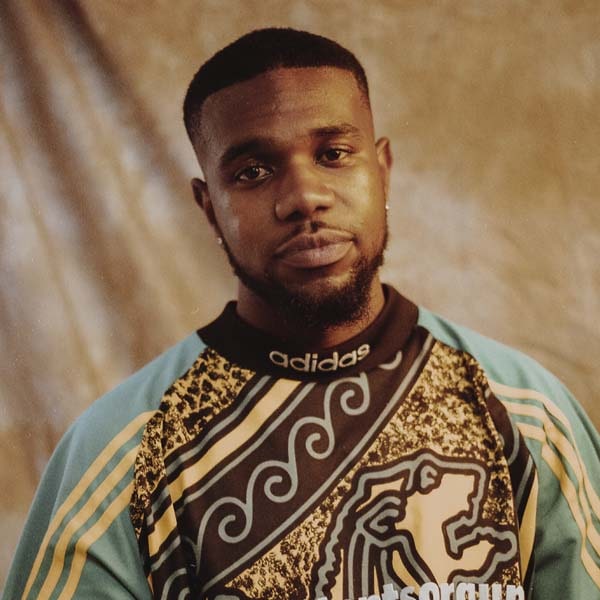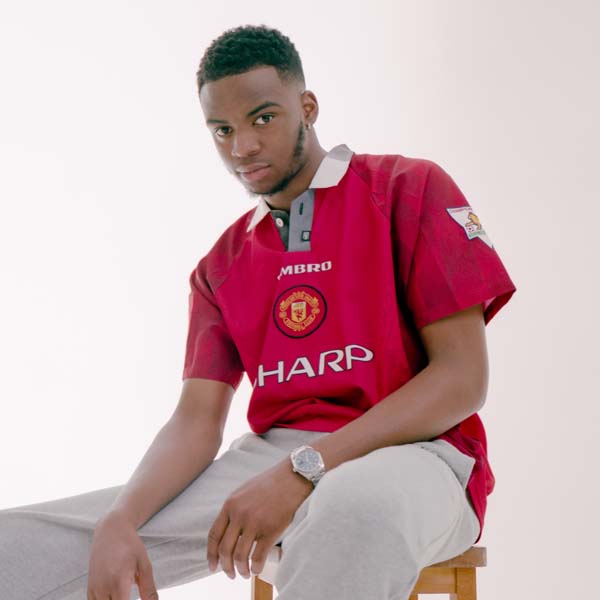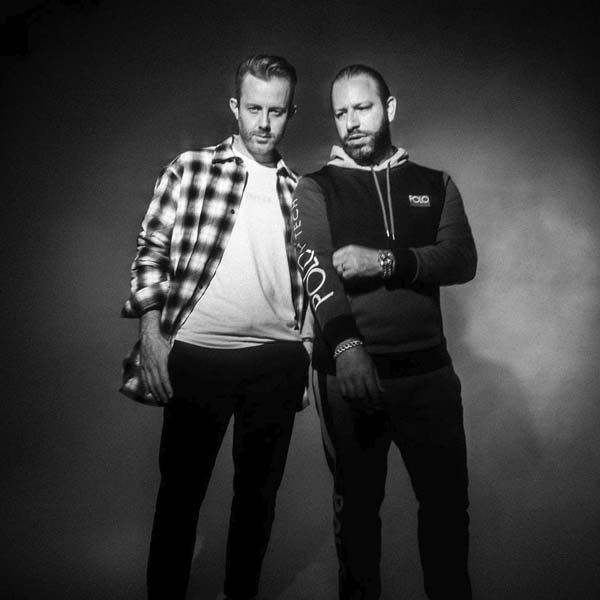True humility is a rare commodity in football. There are many in the game who talk the talk about working hard, improving every day, respecting the opposition, and other such throwaway soundbites. Far fewer walk the walk when it comes to assessing their own achievements.
It’s difficult to be prepared, then, for an interview with someone like Pep Guardiola. The all-conquering Spaniard, champion in each of the three of Europe’s big five leagues he’s graced so far, is humble to a fault. Despite his success, despite his teams playing some of the most aesthetically satisfying football the world has ever seen, he barely acknowledges his personal contribution to any of it. He refuses, even, to call himself a winner. He is just a manager.
Nonetheless, as we sat down to chat in the peaceful surrounds of Manchester’s Victoria Baths, it took us a matter of seconds to realise that while we might have been asking the questions, Guardiola was in charge. He always is – he leads by default. It’s a fascinating combination, boldness without bravado, a relaxed demeanour concealing the innate underlying intensity with which we’ve all become so familiar. His answers on subjects ranging from technology, social media and music to tactical warfare and the stresses of management reveal a depth of character beyond that of any individual previously featured in these pages, and go some way to explaining why, for Guardiola, humility isn’t a virtue, it’s a necessity.
What’s it like when you get to the end of the season? Do you have a comedown after hitting such highs?
Yeah, in the summertime, everybody needs a break. Of course you enjoy what you’ve done when the season is good, like it was last season – you deserve to enjoy that. But at the same time, in your head, you are always thinking of the future. In football, in all sports, after a victory you take a shower, then you start thinking about the next one.
You’ve mentioned before some advice you received from Sir Alex Ferguson: to always be true to yourself, and never change your principles, no matter what others say. First, how difficult has it been to do that in your career, and second, how important has it been to your success?
I don’t think it’s difficult. In any business, when you believe in something completely, you don’t have doubts. The other issues, to do with results, don’t count. [Bad results] happen sometimes, that’s football. You have to adapt depending on your players, but your principles, your beliefs, you always have them. So why should you change something you believe for one or two results, or one bad season? There’s no sense to that. So when people say I have to change because we don’t win, they have to tell me what I should change, or tell me a reason why. For the results? The results are not a reason to change when you believe something deep, deep in your heart.
Even the greatest inventors take inspiration from their predecessors. Tell us a little bit about Johan Cruyff’s influence on your way of football...
He’s the most influential person I ever had in my career. Unfortunately, he passed away in 2016 and he cannot enjoy with us what we are doing in England, because the way we play came from what I learned from him. That’s why I’m sure he would be incredibly satisfied that we are playing in this incredible country, where football culture is everywhere, the way we are, the way we have done, it’s great. I think about him a lot. I talk about him with Txiki, with my staff, many, many times, because his influence on our lives, on and off the pitch, was massive.
When did you first start to notice that you had your own ideas about the way that the game should be played?
When I was 25, 26 years old. I was a football player, and then in that moment I started to think that I wanted to become a manager. In the last years of my career, I began to think about my own games as a player like a manager. Before the games I would start to watch our opponents and try to figure out what my manager would say in that moment, what I would do, and what would happen or not happen. I think it was an interesting process. I started when I was young, when I was still a football player, and I think that served as a good lesson for me when years later I became a manager.
So were you always studying your surroundings and observing?
Yeah. Of course you have to take a licence, you learn that way, but now I feel I am a better manager than when I started. That’s normal. I have more experience, I adapt many things, when in the beginning I couldn’t think about that. Hopefully if I stay a little bit longer as a manager, I will be better.
At the end of the excellent “Take The Ball, Pass The Ball” film, you said that if people remember your Barcelona team in years to come, it won’t just be because they won, but because of how they won. Their style. You’re always so modest, praising your players, but you must be proud of the part you played in creating such a team?
Barcelona was incredible. It was my hometown, the club where I grew up. I went to Barcelona from my tiny little town, 15 years old. I grew up there. They gave me not just a specific culture to play football, but the way you have to live. I was a boy, a teenager, and an adult in my career there; a football player, and then a manager. I’ve said many times, of course Barcelona itself is strong, but especially with the players we had – it would not have been possible without them. The players we had in that period together were incredible, so the credit is absolutely for them. We always try to guide them, to convince them that the way we play is the best way, but Barcelona, with those players – that was the reason why.
You’ve said you became a coach because of tactics, because you like to find solutions. Is that still what you enjoy most, the challenge of finding a way to win a match?
I think football has changed in the last decade, massively. Because the managers are incredible, much better than a decade ago, because they are much better prepared. The technology helps us all a lot: all the teams know exactly what you are doing, what you want to do, every single game. It helps us, but the opponent too. So we know each other; surprises are minimal. The mood of the players and the quality of the players makes the difference.
How much do you enjoy the head-to-head element between coaches? Trying to outwit one another, like a chess match? Is that something you particularly thrive on?
It’s a game in itself. Okay, I’m going to do something to try to beat you, and you’re going to do something to try to beat me. It’s so funny. When you’re a little boy you play games like that, and we’re adults and we play the same game. In the end, I say, let’s see, they play in this system with these qualities, what do I have to do to beat them? Every three days, every single game is trying to do that, and that’s why our lives are fascinating.
Between the managers, it’s a professional relationship. We are not friends. Of course, they want to beat us and we want to beat them. With some you have more of a relationship because of the way both teams play, or a feeling, a love for a certain kind of player, or for football itself.
People describe you as a natural leader, even from when you were a young boy organising the football in your home village. Do you feel like a leader?
Well, in school I didn’t think too much about being a leader. So I don’t know. It’s who I am. I love this game, I like to do my job, and I try to be honest, and I try to convince the players, and the staff, to be together. If people come to me and ask “What do I do?” I say don’t ask that, you have to discover yourself. Copy-paste, in football, in life, it doesn’t work. That’s the way I do things, because I have incredible teams and some luck in some moments, but that doesn’t mean it works for everyone. If I try to imitate someone, I won’t be myself, and the players are so smart that they’re going to notice, and they’re not going to follow me – I’m not going to convince them. So adjust sometimes, be yourself, and say in that moment I have to be more kind, or more strict. It’s what you feel. It’s not a book. You can’t say now you have to do that, or you have to do this to convince the players or win the games. No. Every day is completely different. Every season is a new one. And that’s why it’s nice.
How important do you think it is to have people with the right mindset in your team? Picking them not just because they’re the very best player, but because they have that quality as a person as well.
Seve Ballesteros, when he was alive – maybe the best European golfer ever – said that a good attitude is better than a good swing. Attitude is absolutely everything. Your mindset, your approach, to be open-minded, to be positive, react well in the bad moments, be calm in the bad moments – it’s everything. There’s no sense trying to fight every three days for 11 months to win a title if the relationship every day is not good. It’s part of the reason why we are where we are. Of course the guys who are not playing are sad, and the people who are playing quite often are happy. That’s normal. Even for me, when we win games I’m happy, my reaction is better. When we don’t win, I’m thinking inside what I have to do, my reaction is completely different, my mood, but that’s normal. You have good moments, bad moments. But try to be stable and have a good relationship. Respect. First, we are humans. That’s why attitude is better than any skill.

Taking Raheem Sterling as an example, in the past couple of years he’s grown tremendously on and off the pitch. He’s become a leader himself, and such an excellent role model for so many kids. How proud are you to be part of his journey and players of a similar kind?
[Exhales] A lot. The most important thing for Raheem is that he’s incredibly beloved in the dressing room. I always admire that: the players who are beloved by their teammates. That is top. I think he made an incredible three seasons. Since we are together I think he’s been playing miraculously. He’s strong, he has everything. I think even now he has a desire to get better. He thinks “I can do better”, so he makes drills for himself to become a better player, and that’s good.
Then there’s Phil Foden. Your way of bringing him through seems so natural. How do you help a player like that grow?
I think Phil is one of the most talented players I’ve ever met in my career. First he is so young, so we need to go step by step with his career – maybe at another club he would have played more and more minutes. This is a guy who has a fantastic future in front of him. He can do whatever he wants because he has an incredible work ethic and he’s a fighter. An incredibly talented player. Man City is lucky to have him. We have to help him, protect him, and the rest depends on him. And he will do it.
Do you see similarities between players like him and yourself? Coming from a small town, playing football every day in the streets. He’d still be doing that now if he wasn’t a pro.
I think all the players who become professional players start from the bottom. By that I mean playing with the kids in school, in the street, and then go step by step. Everybody started on bad football pitches, really tough conditions, but it doesn’t matter. Just have fun. Then the qualities, the lucky moments, good advice from the parents, from school, from teachers, to be healthy, no injuries in the right moments – all those things help a lot. After that, everyone makes their own career.
Along with all the highs, there are also plenty of lows in football. How important do you think it is for any young player or manager to learn from the low moments to help you succeed?
Well, they have to know that it’s a mistake by society to think that the second one is a failure. That is an incredible mistake for our communication with the kids. It’s poison. We are not doing very well when we say in the media that only the winner is the successful guy, and the second one is a failure. We’re putting a lot of pressure on the young players by saying that. Even in schools, in any sport, if you don’t win, you are a disaster, you are a failure. That’s wrong. People have to understand: it’s a game, you have more low moments than high moments. You lose more than you win. Michael Jordan is maybe the best athlete ever, and he won six NBA titles in 15 years. I’m pretty sure Federer and Nadal won 18, 19, 20 Grand Slams, but they lost more Grand Slams than they won. For us it’s the same. So the young players must understand to have fun, to do everything, to enjoy what they do, but they have to know, when you lose, it’s normal. When you don’t win titles, it’s normal. The exception is when you win. And you have to try to win fairly often. That’s it.
You make winning sound so easy...
[Laughs] Yeah, it sounds easy, but we’re not educated in this way, and we have to be. For the academy, for the players. You don’t win? It happens. Maybe you do everything to win, and you don’t win. But you try. It’s the process, to want to try to take the success – that is the most important thing. As an athlete, you try to do your best. But the other players do their best too, and sometimes it’s better. Learn from that for the next time.
How important is it then to enjoy the journey of life rather than the individual events?
In my job it’s easy, because all the players in my squad, and me, we love to play football. We wake up in the morning, we are going to play. We are not going to work. We are going to play. It’s completely different. We have boots, a ball, a goal, and we play. Wow. We are lucky.
You’re easily one of the most fashionable managers in football. Do you enjoy experimenting with your style? Do you look at what other managers are wearing on the touchline?
No, but I’m married. My wife has a clothes shop with fashionwear, and I always take advice from her. That’s all. She gives the best advice.
In particular we’ve noticed you like your sneakers. Do you have a collection at home?
Yeah, I have some. Now with PUMA [sponsoring City] I have a lot. They take care of me.
Would you ever consider collaborating with a brand?
I don’t think so. I’m old. I think there are many fashion role models other than myself. I just like the clothes to be comfortable, to be nice to wear. It’s the same with shoes, with my PUMAs. You wear it because you like it. So the designer has to be brilliant to convince us and with how it fits our bodies to be comfortable.
We’ve heard Barcelona used to be quite strict with their players’ appearances and what they were allowed to do, especially back when you were a young player there. How did you find that? Did you ever rebel?
Well, when I was a football player, it was completely different to now. Then life was easier. Media in general was minimal, and social media didn’t exist. With phones and pictures, now it looks like when you don’t appear on social media you don’t exist. Everybody is on there. The kids, my kids as well – it’s impossible to live without it. But I’m not a fan of that. What I want is: live as much as possible, okay, take care of your body, sleep well, eat well, and train professionally to compete, because if you don’t compete another one is going to take your position. But after that, it is your own life. Go to the theatre, the cinema, or make something on social media, advertising. They have to do it. Sometimes it’s good to briefly take your mind off all the games. But the problem comes when that is more important than your job. Sometimes the people live just for social media, and football, the job, is the second part. Now we are in trouble.
How else do you like to express yourself? We know there are a few musical people among the City staff – ever considered picking up an instrument?
No way. I’m no musician. I don’t have that feeling. I think here in England there’s a huge music culture, more than where I come from, in Catalonia. That’s why they are better. Everyone has to know what they’re good at and what they’re not.
We heard the interview you did with Guillem Balague where you listed off all the music you listen to, from Frank Sinatra to Elton John to Oasis. Do you ever go and watch live music?
Where I live we are five minutes from Manchester Arena, and there are concerts all the time. We’ve been to shows quite often there. And in Manchester there are lots of places to go. Local places, big places to listen to music. Sometimes I follow my family. They advise me and say “You have to go there!” I follow them more than they follow me, because I’m an old guy. That’s why my kids can’t follow my advice.
Do you ever stick your head out of the office and hear your players playing their music and think “What is this?”
Yeah [laughs]. But it’s normal, it’s different generations. They have new sounds and it’s nice.
Did you get to see that Elton John concert yet?
Not yet. Still waiting. Maybe next season, next year. Hopefully we can go.
You also said in that interview you’d like to be involved in radio one day...
I love radio. I think the mystery when you drive a car or you’re at home and you listen to the radio, I think it’s the most beautiful thing, more than TV. But when I said that it was about collaborating, I’m not saying I’m going to be leading a programme or anything. I don’t have the radio voice. It was just to be involved, just a suggestion, and of course I’m not thinking of doing that anytime soon.
There’s so much pressure and so much responsibility in what you do – how do you deal with stress?
It’s necessary, you have to handle it. It’s not a good sign if before a game you don’t feel the pressure or you’re not nervous. You feel alive, and feel scared about the result, about the performance. But at the same time, you trust the experience, the way we work, what we do, and you trust in your players that whatever we’re demanding from them, they can do it. Then you have to be focused during the game, figure out what you have to do if it’s not going well, and if you can fix it during the half time. When you become a manager, in the beginning, it’s more tense. But you learn that the world isn’t going to end if you lose one game. We are not the most important thing in the world. Our game is just to play and have fun, to try to win the match to make our fans happy. And tomorrow the sun rises, and we try to improve. It’s just a game. If you win it’s perfect; if you lose, you try again next time.
You gave a talk last year at Liverpool University, and you seemed to regret that you never had the opportunity to be a university student. Say you do get the chance in the future, what subject will you study?
I don’t want to sound presumptuous, but I was a really good student earlier in my life. And I like it a lot. History especially, mathematics. I really like studying. After football came in my life, at 18, 19 years old, my career went in that direction, but I’m pretty sure if I choose to study something I like, I will love it. I like universities; I like the atmosphere. I like that the people have dreams, and they’re trying to find their own paths. I’ve always thought I would like to be a teacher in a university, but of course I can’t because I have to study first to be able to do that. Now we’re going with my kids to the schools, to see them or talk with their teachers, and being there inside, I like it, it’s a nice place to be. But yeah, I couldn’t study, I played football, and that was it.
Read the full feature in SoccerBible Magazine Issue 13. Pick up your copy here.








